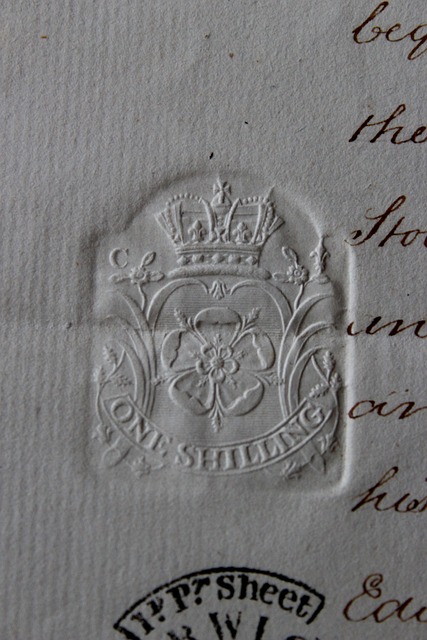When applying for a UK visa, it's crucial to have your foreign-language documents notarized and accurately translated into English or Welsh. To ensure the translations are legally recognized by the UK Home Office, you should opt for a reputable notarised translation service in the UK that is accredited by professional bodies like the Institute of Translation and Interpreting (ITI) or the Chartered Institute of Linguists (CIOL). These services provide precise translations certified by qualified professionals and further authenticated by a notary public. This process, which adheres to the Legal Profession Act 1987 and OISC guidelines, ensures that your visa application documents are accepted and processed without delay. Always confirm that both the translator and the notary are properly registered and accredited to facilitate a smooth and successful visa application process.
When applying for a UK visa, the accuracy and legitimacy of your documents are paramount. A pivotal aspect of this process involves obtaining notarised translations for any foreign-language documents. This article delves into the critical role of professional notarised translation services UK in ensuring your application is processed smoothly and efficiently. We will explore the legal requirements, key differences between standard and notarised translations, and provide a comprehensive guide to securing these essential services. Whether you’re navigating the complexities of visa types or the specifics of document authentication, this piece aims to equip you with the knowledge necessary for a successful application.
- Understanding the Necessity of Notarised Translations for UK Visa Applications
- The Role of Certified Translation Services in the Visa Application Process
- Key Differences Between Standard and Notarised Translations
- Identifying Reputable Notarised Translation Services in the UK
- Documents Often Required to be Translated for UK Visa Applications
- The Legal Framework Governing Notarised Translations in the UK
- Step-by-Step Guide to Obtaining a Notarised Translation in the UK
- Tips for Choosing the Best Notarised Translation Service Provider in the UK
Understanding the Necessity of Notarised Translations for UK Visa Applications

When applying for a UK visa, applicants must present documents that accurately convey the necessary information in English. This is where the significance of professional notarised translation services UK comes into play. The Home Office requires all foreign documents to be accompanied by precise and certified translations to ensure that the content is both accurate and authentic. Notarised translation services UK bridge the linguistic gap by providing official translations that are stamped and certified by a qualified translator and a notary public, thereby guaranteeing the credibility of the translated document. This certification is crucial as it confirms that the translated version is a true and exact representation of the original content, which is essential for visa applications to be processed effectively. Applicants should engage with reputable notarised translation services UK to avoid complications or delays in their visa application due to language barriers. These services not only facilitate the understanding of the applicant’s background but also comply with the strict legal requirements set forth by the UK government, thereby ensuring a smooth and efficient application process.
The Role of Certified Translation Services in the Visa Application Process

When applying for a visa in the UK, applicants must present documentation that accurately conveys information in both English and the relevant foreign language. This is where notarised translation services UK play a pivotal role. These services ensure that official documents, such as birth certificates or academic records, are translated by professionals who are adept at both languages involved. The translations must not only be faithful to the original text but also comply with the strict standards set by the UK Home Office. A certified translation is not merely a linguistic task; it involves an attestation by a qualified translator that the document has been translated accurately and without omission or alteration of facts. This certification gives visa officers confidence in the authenticity of the documents, facilitating smoother processing of the application. The UK’s diverse society necessitates such services to be readily available, catering to a multitude of languages and dialects. By engaging with reputable notarised translation services UK, applicants can avoid the common pitfalls of mistranslation or document rejection, thereby enhancing their chances of successful visa approval. The professionalism and expertise of these services are invaluable, ensuring that all translated documents meet the legal requirements for visa applications and reflect the true content of the original source materials.
Key Differences Between Standard and Notarised Translations

When applying for a visa in the UK, the accuracy and authenticity of translations are paramount. A standard translation conveys the meaning from one language to another but falls short in legal standing. On the other hand, notarised translation services UK hold significant weight within official circles. Notarisation involves a qualified translator affirming the precision of their work before a notary public, who then certifies that the translated document is a true and faithful representation of the original. This process is crucial as it renders the translation admissible for legal purposes, such as visa applications. Unlike standard translations, which are typically used for general understanding, notarised translations come with a statement of accuracy and a seal or stamp of the notary. This certification provides assurance to the UK Home Office that the content has been accurately translated and that any discrepancies can be held accountable. As such, applicants must opt for notarised translation services UK to ensure their visa application documents meet the stringent requirements set forth by UK immigration authorities, thus avoiding potential delays or denials due to translation errors.
Identifying Reputable Notarised Translation Services in the UK

When navigating the complex process of applying for a visa in the United Kingdom, securing accurate notarised translations of your documents is paramount. The UK Home Office stringently requires that all foreign-language documents be translated and notarized by professionals who are both certified translators and registered public notaries. This dual accreditation ensures the translation’s authenticity and the notary’s authority, which is critical for the acceptance of your visa application. To identify reputable notarised translation services in the UK, start by looking for firms that hold membership with relevant professional bodies, such as the Institute of Translation and Interpreting (ITI) or the Chartered Institute of Linguists (CIOL). These organizations uphold high standards of quality and ethics among their members. Additionally, seek services that offer transparent pricing and have a proven track record with clients who have successfully navigated the UK visa process. It’s advisable to verify the qualifications of both the translator and the notary, request samples of their work, and inquire about their experience with your specific language pair. By doing due diligence, you can select a trustworthy notarised translation service that will provide precise translations, essential for the successful submission of your visa application in the UK.
Documents Often Required to be Translated for UK Visa Applications

When applying for a UK visa, presenting documents in their original language along with a precise notarized translation is often necessary to ensure the application process proceeds smoothly. The UK Home Office requires that all foreign documents are accurately translated and notarised if they are to be accepted as part of the visa application. This includes a wide range of documents such as birth certificates, marriage certificates, criminal record checks, academic qualifications, and employment contracts. Notarised translation services UK play a pivotal role in this context, as they provide translations that are certified by a qualified translator and then authenticated by a notary public. This dual process attests to the translation’s accuracy and authenticity, making it legally binding and acceptable to the UK authorities. It is crucial for applicants to engage with professional notarized translation services UK to avoid delays or rejection of their visa applications due to non-compliance with these requirements. Utilizing such services not only expedites the application process but also ensures that all translated documents adhere to the stringent standards set by the UK immigration system.
The Legal Framework Governing Notarised Translations in the UK

When applying for a visa in the United Kingdom, individuals must submit documents that are accurate and notarised translations if the originals are not in English or Welsh. The legal framework governing notarised translations in the UK is robust and precise, ensuring that all translated documents meet stringent standards. As per the UK’s Legal Profession Act 1987, as amended, only individuals who are regulated by the Office of the Immigration Services Commissioner (OISC) or a similar regulatory body can provide certified translations for visa applications. These notarised translation services UK must also comply with the Association of Translation Companies (ATC) and Institute of Translation and Interpreting (ITI) guidelines, which set out best practices and ensure professionalism in the translation process. The Home Office requires that all translated documents are accompanied by a statement of truth from the translator affirming the accuracy of their work. This legal requirement underscores the importance of using professional notarised translation services UK when dealing with visa applications to avoid delays or potential rejection due to language barriers. Translators must be proficient in both languages and have a comprehensive understanding of the context to ensure that translations are not only linguistically accurate but also reflect the original intent and meaning. This legal framework is designed to maintain integrity within the UK’s immigration system, ensuring that all applicants, regardless of their nationality, receive fair treatment during the visa application process.
Step-by-Step Guide to Obtaining a Notarised Translation in the UK

When applying for a visa in the UK, presenting documents that have been accurately translated and notarized is paramount to ensure your application is processed efficiently. The first step in this process is to locate a reputable translation service within the UK that specialises in notarised translations. These services are staffed by professional translators who are native speakers and experts in legal or official document translation. They understand the nuances of both languages involved and can provide precise translations, ensuring that your documents accurately convey the intended meaning.
Once you have selected a notarised translation service in the UK, the next step is to ensure that all your documents are prepared for translation. This typically includes birth certificates, educational qualifications, marriage certificates, or any other relevant paperwork. Provide these documents to the translation service, and they will begin the process of translating the content into the required language, while also arranging for a notary public to authenticate the translated version. The notary will certify that the translation is a true and accurate representation of the original document. After this certification, the notarised translation should be sent back to you along with the necessary stamped paperwork to accompany your visa application. Remember to verify that both the translator and the notary are registered and accredited by relevant authorities in the UK, such as the Chartered Institute of Linguists or the relevant embassy, to avoid any complications with your visa application.
Tips for Choosing the Best Notarised Translation Service Provider in the UK

When applying for a visa in the UK, the accuracy and legitimacy of your translated documents are paramount. Opting for a reputable notarised translation service provider in the UK is crucial to ensure your translations meet the stringent requirements set by the UK Home Office. To select the best provider for your notarised translation services UK needs, begin by verifying their accreditation with relevant professional bodies, such as the Institute of Translation and Interpreting (ITI) or the Chartered Institute of Linguists (CIOL). These accreditations guarantee a high standard of linguistic proficiency and professional conduct.
Furthermore, consider a provider’s expertise in handling visa-related translations. Not all translation services are equipped to offer notarised translations, which carry legal weight and must be certified by a public notary. Check if the service includes a notarisation certificate or apostille with the translation, as this is often required for international documents to be accepted in the UK. Additionally, reviews and testimonials can provide insight into the provider’s reliability and quality of service. Always ensure that the provider you choose offers translations in your target language and adheres to the UK’s legal standards for notarised documents, thus facilitating a smoother visa application process.
When navigating the complexities of applying for a UK visa, securing accurate notarised translations is paramount. This article has delineated the critical role that notarised translation services UK play in this process, ensuring that applicants meet the stringent requirements set forth by UK immigration authorities. From understanding the importance of these certified translations to identifying the key distinctions between standard and notarised versions, readers have been equipped with the knowledge to confidently proceed. Furthermore, the guide to obtaining a notarised translation within the UK, coupled with essential tips for selecting reputable service providers, empowers individuals to make informed decisions. In conclusion, the meticulous attention to detail required by notarised translation services UK is instrumental in facilitating successful visa applications, bridging language barriers with official documentation that adheres to legal standards.
